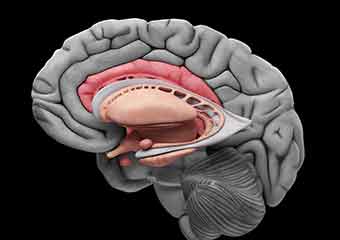For trauma survivors, one of the most insidious roadblocks to healing is often the debilitating feeling of shame that can linger after a traumatic experience. So how can practitioners help clients begin to reclaim a sense of self-worth? Kerstin Jung, PhD and Regina Steil, PsyD, at Goethe University Frankfurt, in Frankfurt, Germany, wanted to find […]
Resistance to PTSD: Could It Be in Your DNA?
Not everyone who experiences trauma develops PTSD. So what might be boosting the resilience of the folks who experience trauma and don’t suffer from PTSD? According to Israel Liberzon, MD, of the University of Michigan, Ann Arbor, genetic factors might play a role. When combined with trauma in early childhood, a tiny DNA change (or […]
Three Ways Trauma Can Change the Brain
The treatment of trauma can be some of the most complex work practitioners face. And for years, this challenge was complicated by not having a clear picture of the impact that trauma has on the brain. But scientific advances within just the past few years have opened the eyes of practitioners to what actually happens […]
PTSD, the Hippocampus, and the Amygdala – How Trauma Changes the Brain
Emotional neurocircuitry . . . . . . it’s how the brain is wired for emotions. But in the brain of a person with PTSD, emotional distress could physically (and perhaps even visibly) change the neurocircuitry. In a normal brain, the interaction between the hippocampus and the amygdala is important for processing emotional memory. It’s […]
Neurofeedback Training for Trauma Treatment
Yesterday in the Rethinking Trauma webinar series, I had a conversation with Sebern Fisher, MA. Sebern is an expert in the use of neurofeedback and has seen tremendous success in implementing this revolutionary technology with patients. Some of the questions that have come up repeatedly are, “How do I get trained on using neurofeedback with […]
Healing a Traumatized Brain with Neurofeedback
Pioneers in the field of brain science and the treatment of trauma are continually researching new ways to help treat post-traumatic stress disorder (PTSD) . . . . . . and it looks like they’ve found something that works with the plasticity of the brain to help people gain control over a restless mind. R.C. […]
One Powerful Trauma Intervention for Working with a "Fear-Driven" Brain
When we treat patients who have experienced trauma, we’re often working with a brain that’s driven by fear. So for practitioners, it can be essential to know just what part of the brain to focus in on, and more importantly, what you can do once you know where to look. According to Sebern Fisher, MA, […]
Rethinking Trauma – Stephen Porges and the Polyvagal Theory
Following trauma, the body’s warning system often gets stuck on high alert . . . . . . but in Wednesday’s webinar with Stephen Porges, PhD, we got into some effective ways for “speaking” directly to a trauma survivor’s nervous system. Stephen revealed how things like tone of voice, certain gestures, and even the use […]
A Trauma Therapy Program for Children in Conflict Zones
If a single traumatic experience can change a person’s life for years to come, what must an average day be like for someone who faces traumatic events on a routine basis? For people affected by war or natural disaster, where entire populations from infants to the elderly have been exposed to so much suffering, what […]
Reframing a Patient’s Response to Trauma so They Can Heal
When a trauma occurs, our bodies simply react. But sometimes, when the body immobilizes in the face of trauma, this shutdown response can leave some trauma survivors (and even their loved ones) wondering why they didn’t “do” more to protect or defend themselves . . . . . . and often, this feeling of helplessness […]







